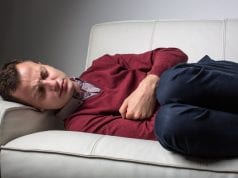
Constipation is a fairly common ailment that all of us have either experienced or heard of. The discomfort is enough to disrupt daily activities, and when paired with a sedentary lifestyle or unhealthy diet, the issue goes up a notch. However, while constipation is a digestive system nightmare, it is an often-faced reality for the older group of people.
Causes of constipation in older people
Other than the ones mentioned above, there are a number of other causes as well. While sometimes the issue is genuine, other times it may be imaginary as many older people are overly concerned about their motions. Constipation in older people may be attributed to the observation that many single or widowed senior citizens suffer from a lack of interest in eating. They may also eat a lot of “comfort foods”, which are usually low in fiber.
Also, with dental issues and loss of teeth, eating regular meals may also seem to be a bit problematic. Thus, they might choose softer, processed food options which are, again, low in fiber. Even fluid deficiency can contribute to constipation, which may complicate the situation paired with irregular meals. Also, being bedridden for long or a lack of exercise can give rise to constipation as well.
If this was not it, there are certain drugs that older people might take that lead to constipation as well. These include diuretics, antihistamines, antidepressants, aluminum or calcium based antacids, and anti-Parkinson’s drugs. In fact, the overuse of laxatives may also lead to bowel issues as they can be. Eventually, as a person becomes dependent on them, the natural mechanism begins to fail.
Types of constipation that affect older people

Primarily, the following are three types of constipation that affect the elderly:
1. Normal transit constipation
In this subtype of constipation, stool passes through the colon into rectum normally, but the person finds it difficult to pass it. It is also seen with IBS – Irritable Bowel Syndrome – with the distinction being that IBS is accompanied by abdominal discomfort.
2. Slow-transit constipation
Seen often in women, this subtype is characterized by limited urgency to pass stool, infrequent bowel movement, or/and difficulty in defecating. The movement of stool in the colon is very slow.
3. Pelvic floor dysfunction
The area around the anus, the pelvic floor, is very important as it houses several important muscles. In this subtype, the person is not able to coordinate these muscles during defecation. The evacuation feels to be incomplete and is usually paired with a slow transit rate.
Treatment for constipation in older people

A proper diagnosis of constipation is required before a suitable treatment is suggested. It is very important to rule out other causes of constipation and difficulty in passing stool in order for the treatment to work effectively. Your doctor will order some tests if required, as many other diseases may have similar symptoms.
Constipation treatment basically refers to the management of the condition in order to restore the natural bowel movement. The aim is to ensure the comfortable passing of stool at least thrice a week, without too much strain or side effects.
To achieve this, many lifestyle changes are recommended, some of which are: increasing physical activity and intake of fluids and fibers, reduction in consumption of alcohol, coffee and tea (for each of these, drink an extra glass of water), and sticking with a balanced diet or you can visit here.
Another thing that is considered to be important is bowel training. The best times to visit the toilet are early in the morning after waking up and post meals – the times when the gut transit rate is great. Patients may also be advised to sit in a semi-squatting position which can be achieved by leaning forward on the toilet with the help of a footstool.
In severe cases, surgery may also be suggested. However, most patients are benefitted by the supplements and laxatives mentioned above.
Conclusion!

Senior citizens or elderly people are at a much higher risk of constipation than any other age group. The reasons may include poor bowel habits, lack of exercise, lack of or insufficient fluids, poor dietary choices, and use of certain medicinal drugs. However, with proper management, constipation can be easily curbed.







